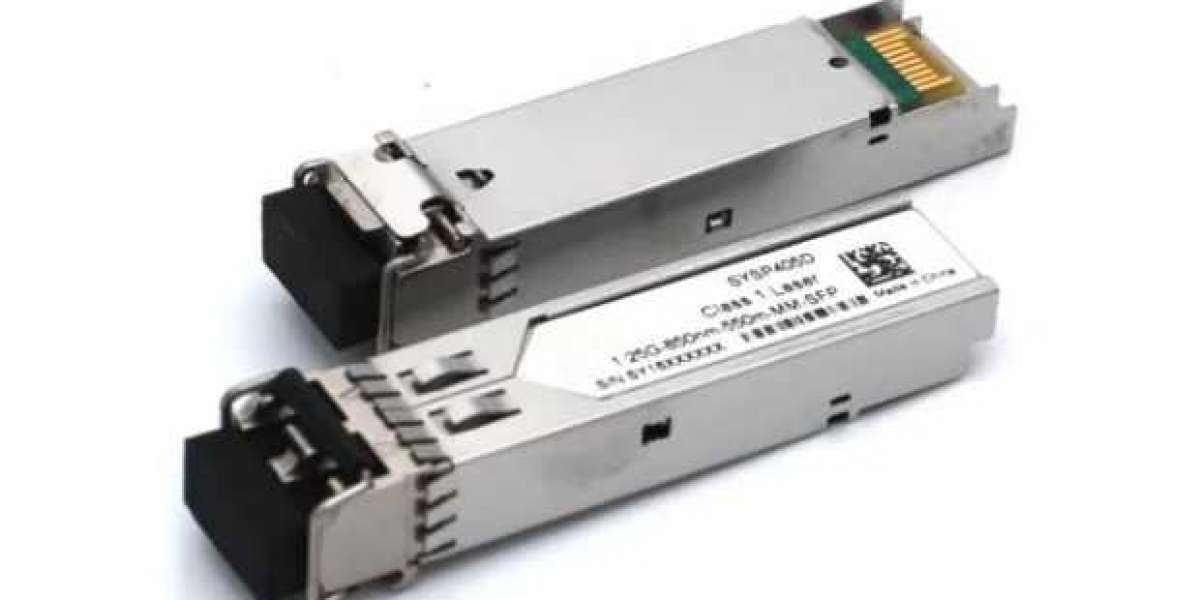An optical module is a device based on optical technology that can convert electrical signals into optical signals to achieve high-speed, large-capacity data transmission. In the field of modern communications, optical modules have become an indispensable part, and their working principles and advantages have also been widely recognized and applied.
1. Working principle of optical module
The working principle of the optical module is to use the photoelectric conversion properties of semiconductor materials to convert electrical signals into optical signals. Generally speaking, an optical module mainly consists of three parts: laser, modulator, and receiver. Among them, the laser is responsible for generating optical signals, the modulator is responsible for converting electrical signals into optical signals, and the receiver is responsible for converting optical signals into electrical signals. When an electrical signal is input into the modulator, it changes the light intensity in the optical module, thereby realizing the transmission of the optical signal.

2. Advantages of optical modules
High-speed transmission
Optical modules use optical transmission technology, and the transmission speed can reach tens of Gbps or above, which is much higher than traditional cable transmission technology and can meet the needs of high-speed data transmission.
High stability
The optical module uses optical transmission technology, which is not affected by electromagnetic interference and signal attenuation. The transmission signal is stable and reliable, which can ensure the quality of data transmission.
Small volume
The optical module is small in size and can be easily integrated into various devices to improve the performance and functionality of the device.
Energy saving and environmental protection
The optical module uses optical transmission technology, does not require additional power supply and cooling equipment, is energy-saving and environmentally friendly, and meets the requirements of low-carbon and environmental protection.
High security
The optical module uses optical transmission technology, which does not produce electromagnetic waves and radiation, is not harmful to the human body, and can ensure the safety of data transmission.
In short, as an important part of the optical communication field, optical modules have continuously improved and improved their working principles and advantages, providing strong support and guarantee for the development of all walks of life. With the continuous advancement of science and technology, the application scope of optical modules will become more and more extensive, and it will also play an increasingly important role in the future communications field.



